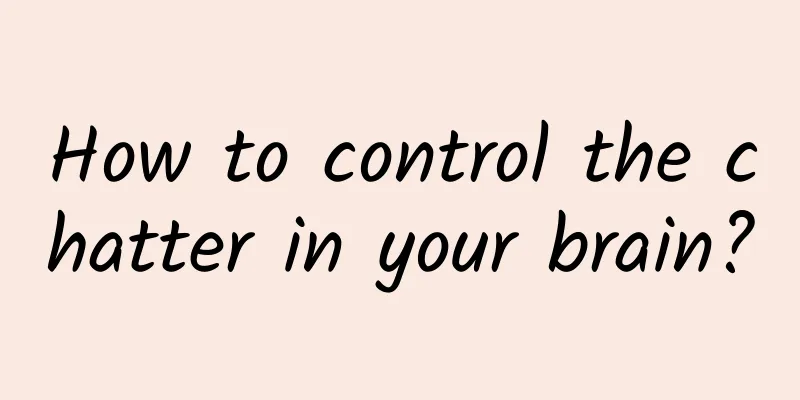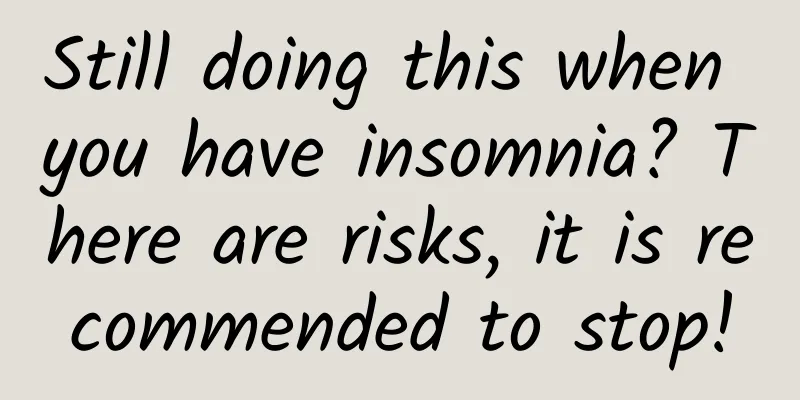How to control the chatter in your brain?

|
Leviathan Press: When you read this text, what is the voice in your head like? What language is it (Mandarin?), what is the accent (emotional or emotionless?), what is the timbre? In fact, it is quite strange to think about it carefully. When we see a piece of text, the first thing we do is not to understand the meaning of the text directly through the text, but to read it out in our minds first. The function of the text itself is to convey information, but we seem to only be able to understand the content of the text through hearing. In this article, we temporarily translate “Mind Chatter” in the original text as “the chatter in the mind”, but it does not completely correspond to the meaning of the original text, but we have not found a more suitable translation yet. We’ve all been there—a two-minute conversation three days ago takes over our minds, and we keep replaying it in our heads over and over again. (For example: I shouldn’t have gotten mad at my dad. He was always so patient when I was growing up.) We get so caught up in these emotions that the voice in our heads goes from being an ally to a nagging demon that keeps us going in circles on the same thing. Ethan Kross, an experimental psychologist and neuroscientist at the University of Michigan, wants to teach us how to master the voices in our heads—not mental illnesses, mind you, but the little voices we all produce that serenades (or nags) us as we go about our lives. If we could control the voices in our heads, it would be one of our greatest advantages, Cross says: These voices can lead us to another world, to an alternative past or an exciting future, or they can keep us trapped in our own world. In her new book, Chatter: The Voice in Our Head, Why It Matters, and How to Harness It, Cross offers readers some tips for controlling chatter. One important technique is "distant self-talk," which involves using language to create psychological distance from the self. The best way to resolve a stalemate is to step outside of it, and the way to step outside of it is to treat the voice in your head as someone else. (You can never be sure what your father is thinking, Liz, and he may be pleased that you talk back.) Cross and I discussed over Zoom how to define nagging, what goes on in our heads when it bites us, and, of course, how to take control of that incessant, relentless voice. Meredith Heuer's review: Ethan Cross, author of "The Nagging Mind," said he wanted to "reveal everything we know about nagging, why it happens and what to do about it," and that he "has always been interested in how to present our findings to the public, rather than just keeping it at the level of scientific discussion." © Journey Beyond Divorce - What is Nagging? When we encounter a problem, we usually turn our attention inward to sort it out, but we often get stuck there. We think about it, worry, and make a mountain out of a molehill. People in this situation often have negative thoughts that go on in an endless loop, which is called nagging. It can be an obsession with the past, which is constantly thinking about it, or an obsession with the future, which is anxiety. ——How to distinguish between normal stream of consciousness and the mental state of being about to fall into mumbling? Generally speaking, if you find yourself rehearsing the same thing over and over again instead of coming up with a clearer, more objective solution, then you may be starting to get into nagging. And you'll find that those negative thoughts start to get in the way of you getting other things done. I think most people recognize when they're experiencing nagging. It can make it difficult for us to think and act smoothly. One of the main reasons is that your attention span at any one time is limited, so once you divide your attention between thoughts, it’s up to luck whether you can get things done. Nagging can also have a social impact. It often causes more strain in interpersonal relationships in many ways. For example, we complain about our problems to others and keep complaining about our problems, which can alienate others. Or when we experience bad negative emotions, we often attack others and vent our emotions on them. Nagging pushes us into the swamp of tension and tries to trap us. Tension itself is neither good nor bad, but being nervous for too long is not good, and this is what nagging tries to do. ——How to stop mumbling? Different techniques work for different situations and people. The most effective ones are a combination of techniques. When I get caught up in my thoughts, I do a few things. I do long-distance self-talk, temporary self-isolation, and counselors who help me see things from a different perspective. These people are not my closest relatives, but they are very good at helping me when I am in pain. I also go for walks in nature and clean up the office around me. —In The Nagging, you talk about how you prevented a particularly terrible bout of nagging by calling your own name. I found it interesting that calling your own name in your head had such a dramatic effect. We know that it is easy to give advice to others, but difficult to accept it ourselves. We also know that language is a tool to help solve our own problems, such as talking to ourselves as if we were someone else. This kind of long-distance self-talk uses your own name or non-first-person pronouns such as "you", "he", "she", etc. Many people have discovered this method accidentally, but they don't know why it works. Experimental evidence shows that it can give you some psychological space and distance from the problem you are facing, which can help you come up with more useful suggestions to solve the problem. Why do you think language works? The trick is that calling yourself by name is almost an automatic perspective shift because you are so used to calling others by name. — Does it make a difference if you call yourself by different names? For example, first name, last name, nickname? We haven't systematically explored the difference between, say, "It's OK, Ethan, you can do this," "It's OK, E-man," and other expressions. We think names and non-first-person pronouns work because people use them almost exclusively when they are thinking about or referring to other people. We know that asking kids to imagine they are superheroes has a positive effect. It's called the Batman effect. If your child is facing a difficult problem, you could say, "Matt, what would Batman do in this situation? Imagine you are Batman and guide yourself through the problem." When you’ve been rejected and you’re overwhelmed, we’ve found it helpful to describe the experience from a group perspective rather than a first-person perspective. This is a language strategy that helps people make meaning out of negative experiences. It takes the experience away from “you” as an individual, because you’re not the only one going through it, but a lot of people around the world (and anyone who’s been through it will respond in the same way). This creates distance and helps normalize your experience. —In the book, you talk about how nature, even virtual nature, can have a positive impact on the voices in our heads. Yes. Why nature works is because it takes our attention away from thoughts. And it does this in a subtle way - it shifts our attention to something that interests us, without expending a lot of energy. Virtual nature also has a positive effect, but this seems to be a dose-effect relationship. So the more emotionally intense and immersive the experience with nature, the better the effect. Another mechanism that could explain why nature works is the increase in awe. This is the feeling you get when you are faced with something that is inexplicably vast or huge. This gives you a sense of perspective, making the things that bother you seem more insignificant. ——Why do I have these random thoughts in my head? When we experience negative emotions and try to analyze our feelings, we often focus on this experience and ignore other things that can make us feel better. This leads to constant "introspection" and "reviewing", and we are obsessed with thinking and feeling problems from a negative perspective. This psychological experience corresponds to an increase in the level of self-referential processing and emotional processing in the brain. As for why there is nagging, it is a kind of adaptive response mechanism - solving problems through self-reflection - but it is off track in certain situations. What does it feel like when your brain is mumbling? Activity in a brain region increases when we compare ourselves to others, so this self-referential processing system is more active in people who experience nagging and even more so in people who experience clinical anxiety and depression. ——What is a self-referential processing system? This is a group of regions near the midline of the cortex, including the dorsal anterior cingulate and the posterior cingulate. When you put someone in a brain scan and ask them to think about something, this region lights up. They naturally think about experiences that are relevant to the self. So this region is associated with thinking about the self. When the mind is buzzing with thoughts, this region is more active than usual. The cingulate gyrus of the left hemisphere of the brain viewed from the midsagittal plane. © wikipedia—— What experiments did you do to support your view? We studied the state of the self-referential and emotion processing areas of the brain when we were talking to ourselves at a distance. Interestingly, in the brain imaging, there was less activity in both areas, and no additional load on the cognitive control areas, which are often activated when we try to control ourselves. This suggests that it is difficult to control emotions. However, switching words seemed to be easier to achieve, and the perspective can be easily changed. We think this is partly because names are so easy to associate with others. ——“Mindfulness” is very popular nowadays. What do you think? I think mindfulness is great, and there's a lot of data to back it up. My only caveat with mindfulness is that it's just one tool among many. The difficulty is figuring out how different tools work together. Sometimes the subtext of mindfulness gets blown up to mean "you should always be in the here and now." But the human mind didn't evolve to always be in the here and now, we think about the past and the future, and we benefit a lot from that kind of time travel. So I think the challenge is how do we help people be more productive in being able to think about the future and the past without telling you to shut down your mental time machine completely when you're feeling frustrated. Can we benefit from mumbling? The voice in your head is often amazing, it's a superpower that can help us do a lot of different things. As for nagging, I view it as a voice in your head that is not productive. So I think once you get into the dead end of nagging, it's not about whether it's productive, it's about whether it's detrimental. But that's not to say that we should kill the voice or stop talking to ourselves. That's not good. The key is to figure out how to talk to yourself, how to use the right language to solve the problem, without letting yourself get caught up in the nagging. By Liz Greene Translated by Yord Proofreading/Amanda Original article/nautil.us/issue/98/mind/how-to-quiet-your-mind-chatter This article is based on the Creative Commons Agreement (BY-NC) and is published by Yord on Leviathan The article only reflects the author's views and does not necessarily represent the position of Leviathan |
>>: What is formaldehyde? Is mild formaldehyde pollution a big deal?
Recommend
Can Chinese medicine cure cervical hypertrophy?
Patients with cervical hypertrophy sometimes feel...
My aunt hasn't been clean for more than ten days
Under normal circumstances, women's menstruat...
In addition to "panda blood", there is also "dinosaur blood"?
On TV or in the news, we often see someone's ...
What should I do if black menstrual discharge appears?
Many female friends may experience dark menstrual...
Seven months pregnant woman feels like having period pain
Pregnancy is the top priority in every woman'...
Can I eat hawthorn during menstruation?
Menstruation is a normal physiological phenomenon...
Woman's calf numbness and swelling
In today's society, many women have to do hou...
What to do if the endometrium is too thin and menstruation does not come
If a woman's endometrium is too thin and she ...
The benefits of regular moxibustion for women
Moxibustion is a method that helps the body detox...
How many days of pregnancy is one week
Pregnancy lasts for ten months. These ten months ...
Frequent false labor at 38 weeks means birth is imminent
In the later stages of pregnancy, pregnant women ...
Why do you hold your urine when doing uterine ultrasound?
When women go for gynecological examinations, the...
What does a hazelnut look like? How to eat raw hazelnuts at home
Hazelnut, also known as mountain chestnut, pointe...
Can pregnant women drink Pudilan oral liquid?
Pueraria lobata oral liquid is a relatively commo...









